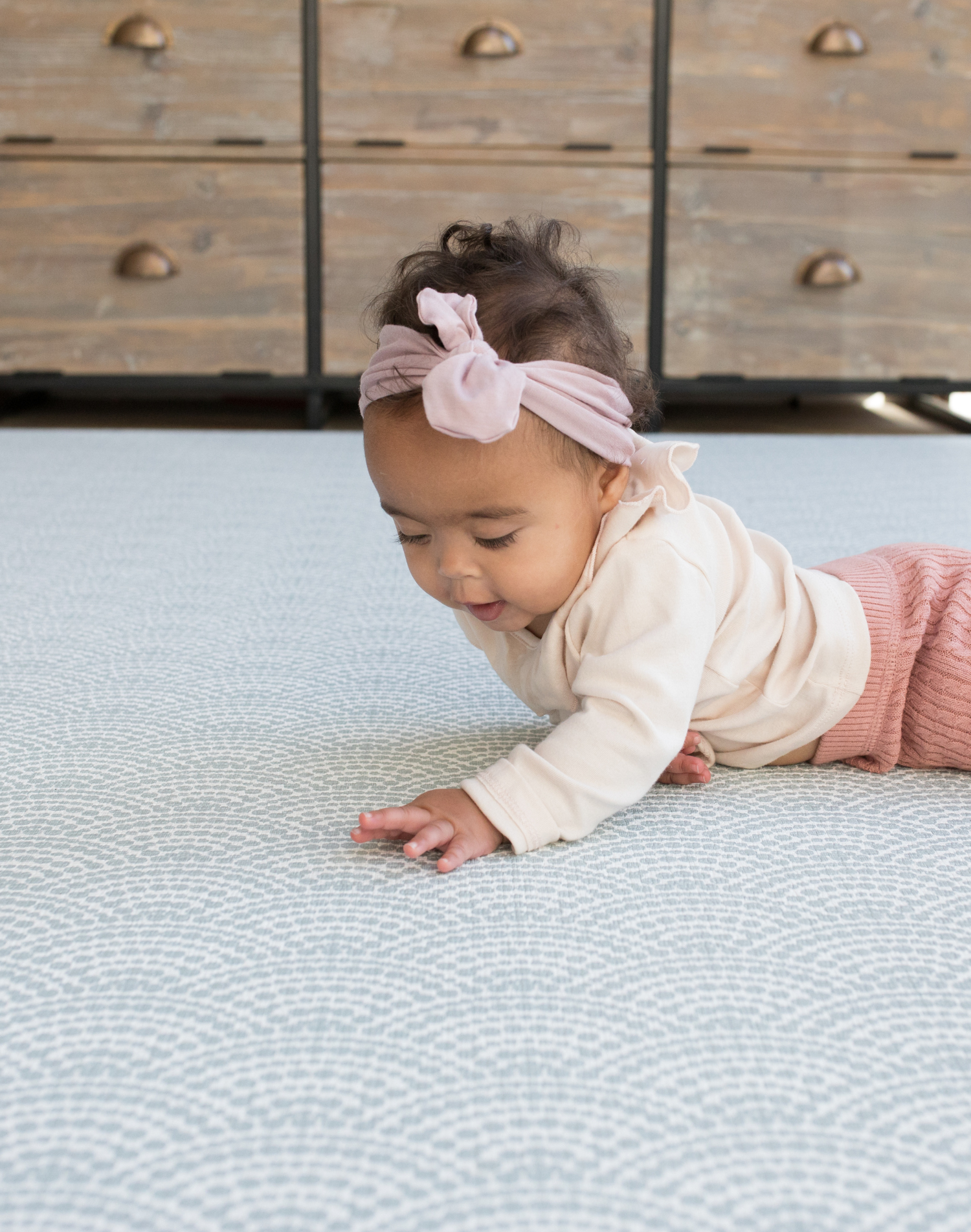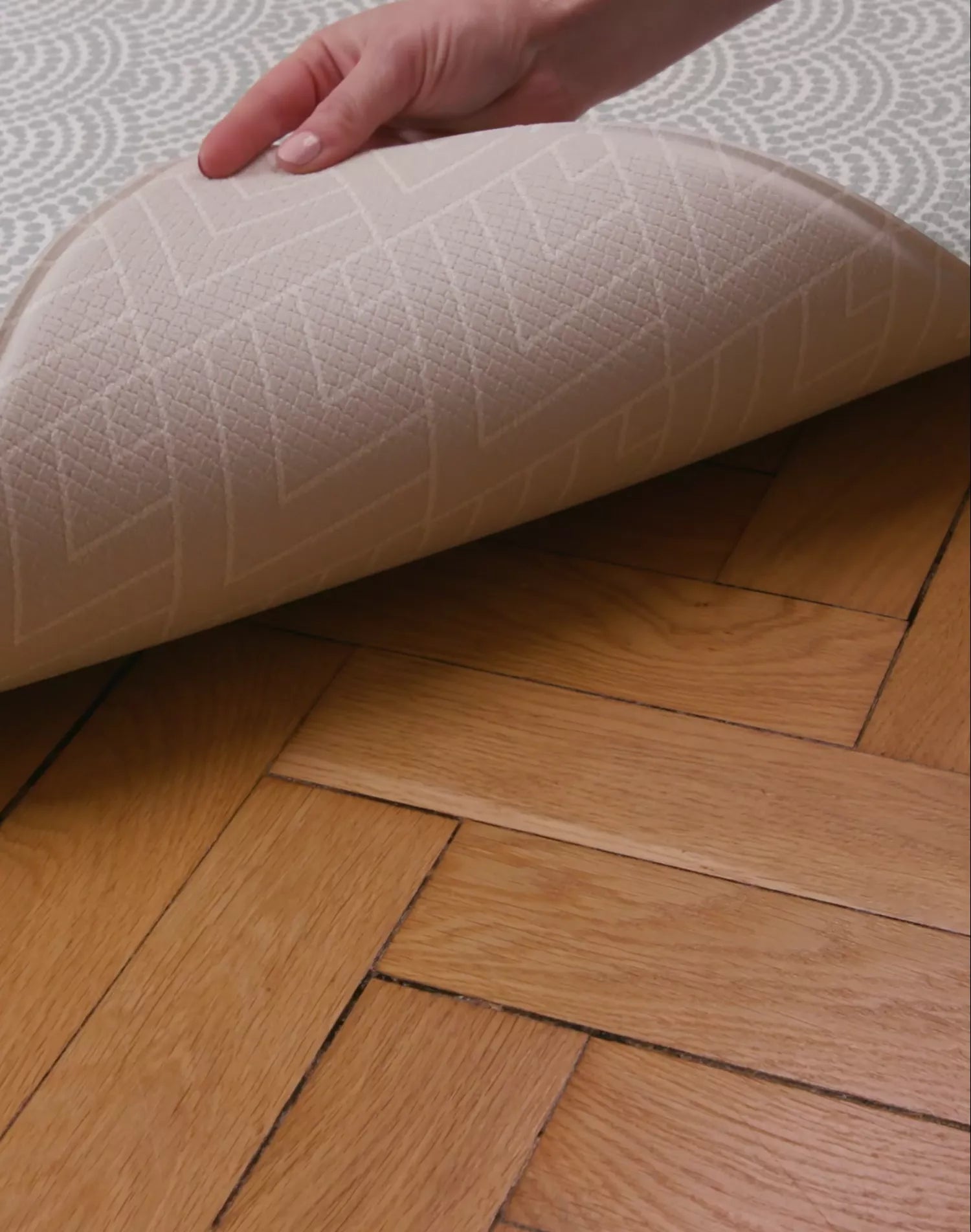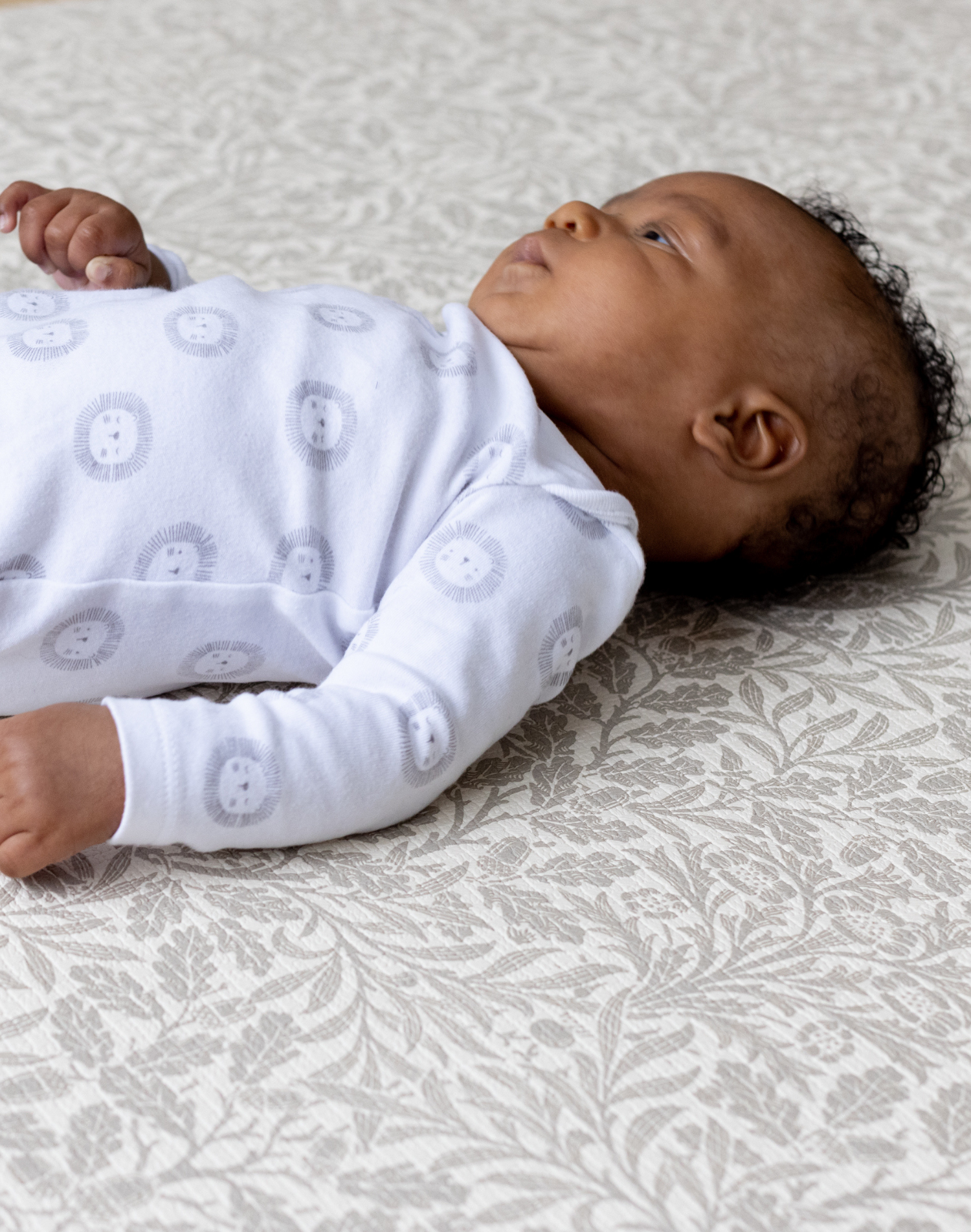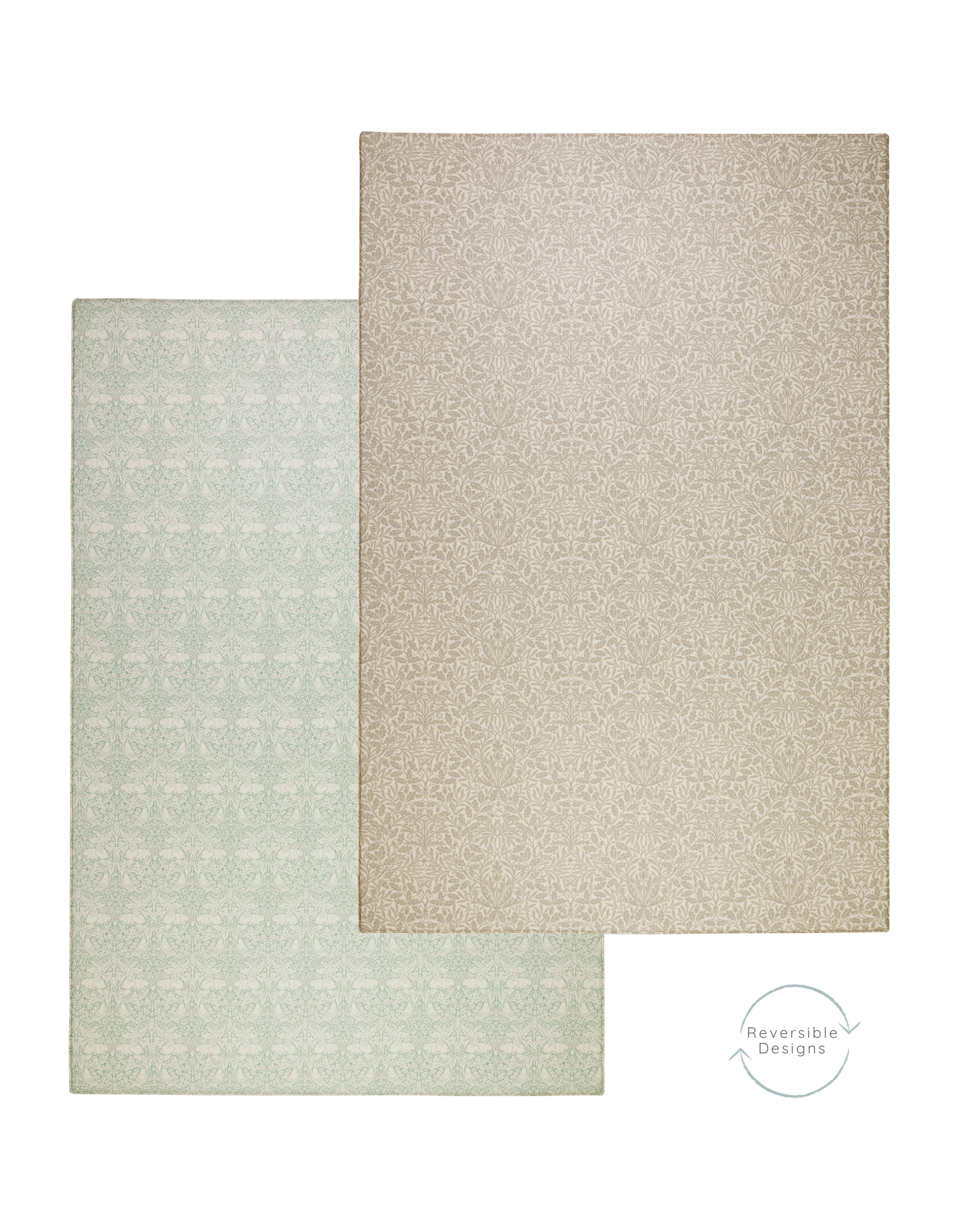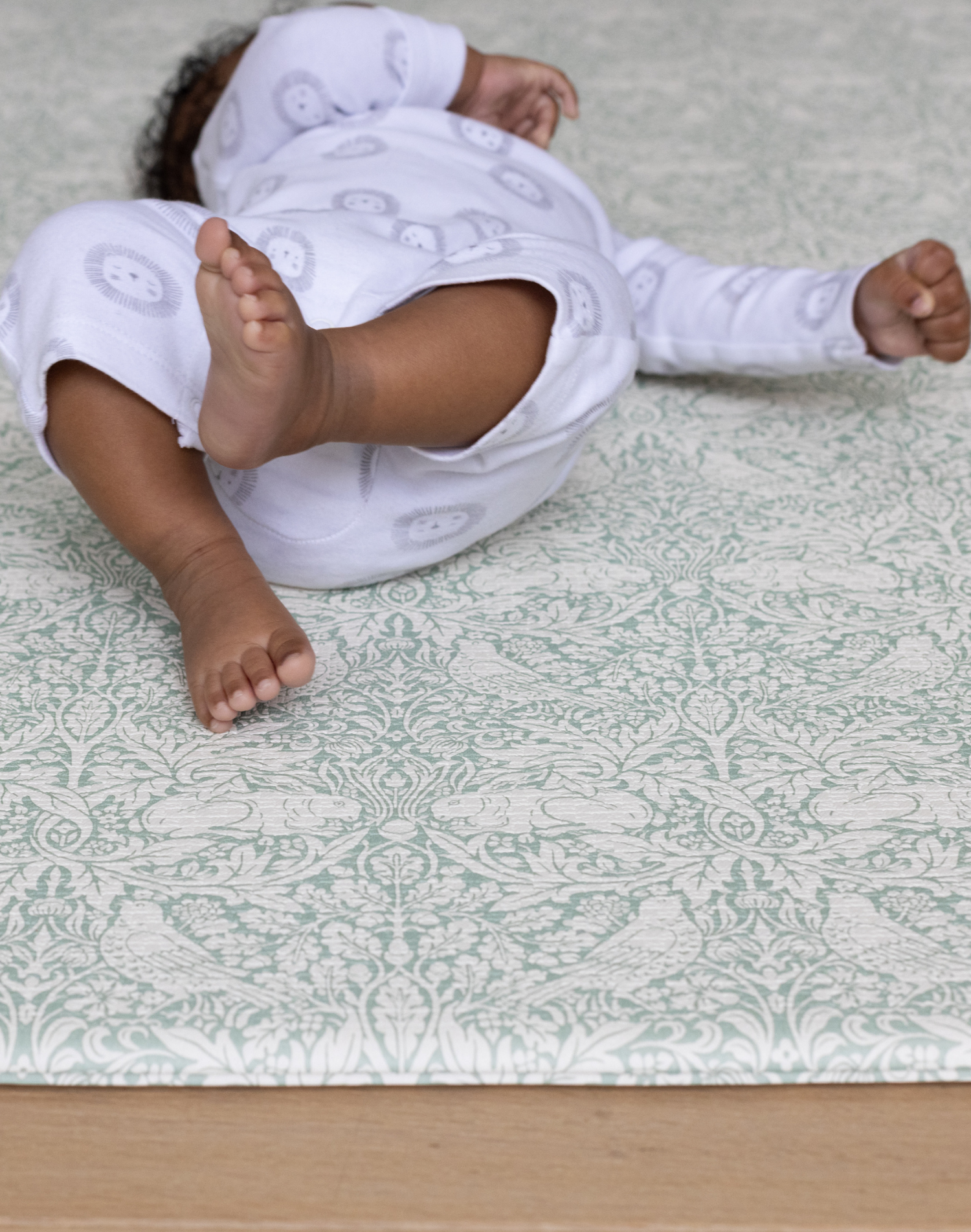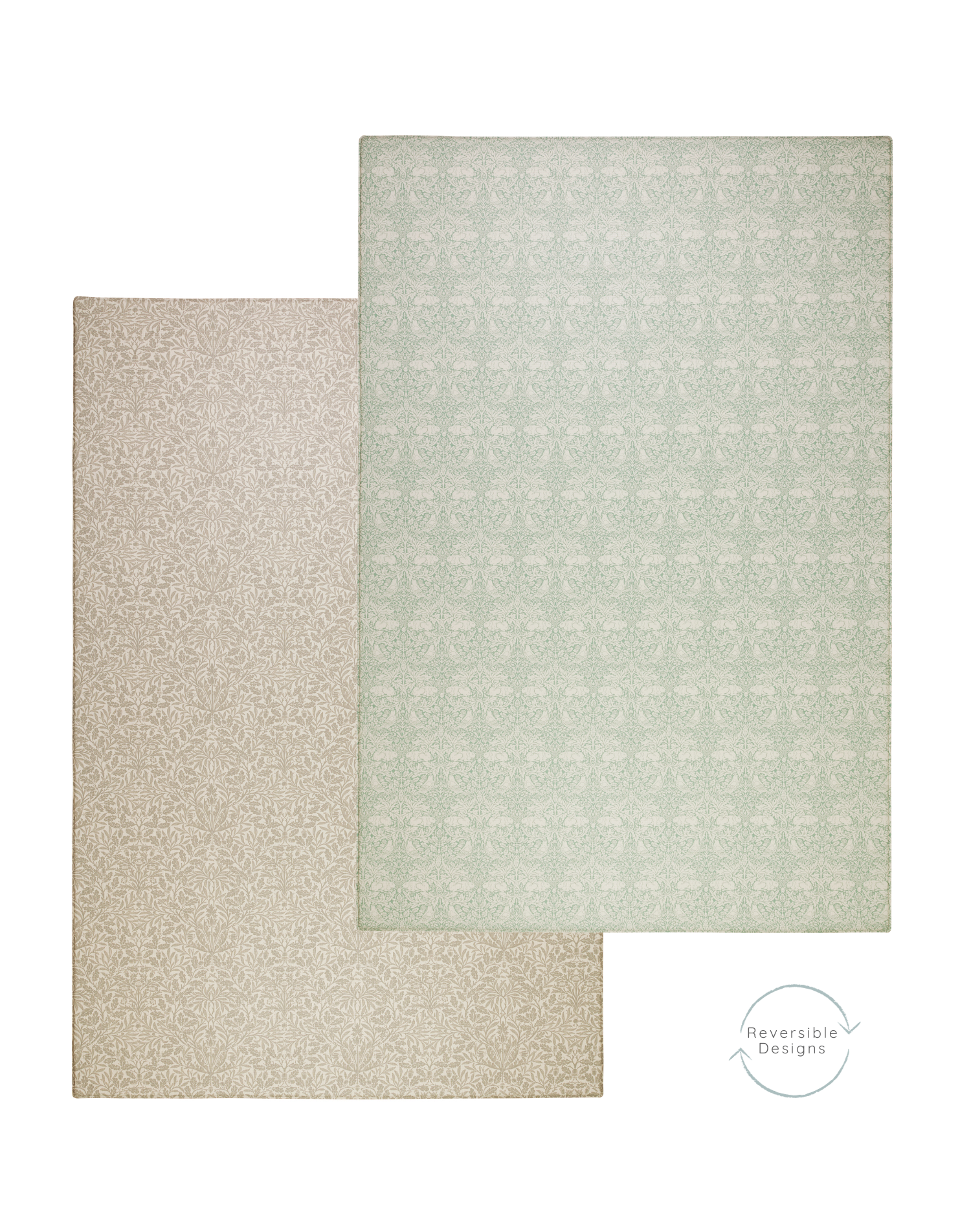Floor play is essential for any child’s development, but for children with life-limiting illnesses it can offer stimulation and liberation from the restrictions of limited movement. Helen & Douglas House is a children’s hospice providing care and support to children and their families and a place where play is a crucial part of the work they do.
Gemma has been working as part of the play team for thirteen years and feels privileged to be part of such an amazing place. Here, Gemma shares advice and tips on why and how floor play should be part of every child’s life.

What is it like being part of the play team at Helen & Douglas House?
The role itself is varied with lots of different elements, no two days are ever the same. We always put the patients and families at the heart of what we do and it has been incredibly hard during the pandemic to support the families in the way we normally would. Many of our families continue to isolate at home, which means they have very little time to organise play activities. One way that we have managed to support them is by sending play packs with resources and activities to make it easier for them to create playful moments with their child.
Why is play so important?
Play is important for all children and a pivotal tool in their emotional, social, intellectual and physical development. It is through play that children learn and discover about the world that they live in. It also provides them with the chance to develop language, problem solving and communication skills.
Play is important at Helen & Douglas House because, understandably, the medical needs of our patients are the focus, but at the end of the day, children just want to be children, which is why the team and I are a key part of the service, we ensure that play is a part of the patients day which often works as a distraction from their illness. It doesn’t matter if a child is unwell or not, every child wants to play.
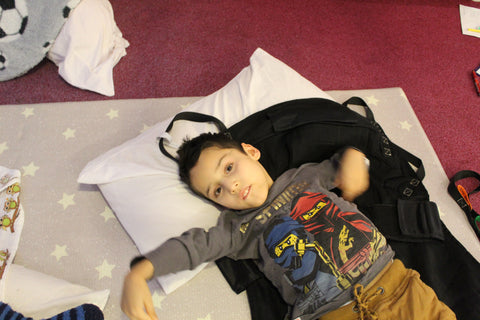
What are the benefits of floor play?
Especially for babies, tummy time and floor play is really important as it helps them learn skills they need to master such as rolling, crawling and then walking. Babies can sometimes be reluctant at first, but if you provide fun activities it encourages them to get active. We have a lot of children with physical disabilities and floor time frees them from the restriction of their wheelchair and bed, floor play enables to get comfortable and take part in social environments.
What are your top 5 floor play activities?
- Sensory play is really easy to introduce and there are many types of this but one of my favourites is using sensory bags. We mostly use sandwich bags and fill it with different contents to stimulate the child through the textures and colours. Examples of contents that I use are, jelly, sand, screwed up paper, rice and paint. It sounds messy but it is actually a great way to stimulate the child whilst keeping the house clean and tidy, you just need to make sure the bag you use is secure.
- Books and stories; lying down together to read stories can be a magical time. Stories help with imagination and communication skills. Even when the child is still young you can talk about the characters, sounds and colours to encourage conversation. Many of our children are unable to speak but discussing the story makes it more exciting for them and makes them feel involved. I highly recommend bringing the story to life by using items around the house such as, bubbles to represent snow, cuddly toys to represent the characters and feathers to represent wings.
- Tray time is a very popular floor time activity, we often use a low lipped tray and fill the tray with different items. Again, this encourages the child to be mobile and explore. We’ve filled the tray with shredded paper and hidden objects for the children to find and you can create a building site with sand, rocks and diggers.
- Creative play can be done on the floor by drawing round the body or body parts. Depending on the age of the child you can use colouring pens or pencils or paint. You can talk about the different parts, asking questions such as ‘what colour are your eyes?’ or ‘How many fingers do you have? This type of play makes the child aware of their body and again, even if the child is not able to speak, it is a way to encourage conversation through facial expressions and pointing at what is being discussed.
- The most popular activity we do is music therapy, whether we are making it or listening to it, it all depends on the child and what they enjoy. For some children we use rattles and shakers to help them focus and to encourage them to reach out and take the instrument. The more mindful element of music therapy is to create a cosy and relaxing environment with lots of cushions and fairy lights that you can enjoy together. You can even give the child a hand massage whilst you’re listening to the music to help really calm their mind.

Why is floor play used at HDH?
As I mentioned before, many of our children spend a lot of time in their wheelchair so being out of their chair enables them to move their limbs and stretch out without it having to be in their bed. It also allows for a more comfortable and calming opportunity for our children to receive their physio. Having a play mat in a communal area rather than in their bedroom also means they can socialise with others and spend quality time with their family.
How do you make floor play safe?
At the hospice we always choose an area that is away from any walkways, away from anything that can be pulled down or rolled into. Picking a safe space for floor play is really important to make the experience as enjoyable and uninterrupted as possible. Use a soft and comfortable mat to make sure the child is supported and you can use different pillows to support the child in their position. For some children you may use additional pillows such as a wedge or all-round pillow. For families I would advise to only do floor play when you have the time to spend with the child as it is a very one to one activity that requires supervision. That is what is so great about floor play, it is all about spending quality time together.
Helen & Douglas House is the world’s first children’s hospice and due to COVID-19 they need support now more than ever. If you would like to find out more or donate, visit their website at hdh.org.uk.
